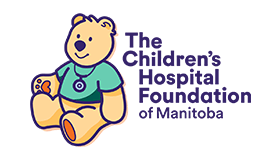Surgery
HSC provides a variety of pediatric surgical services, but mostly specializes in dentistry, gastroenterology, general surgery, hematology/oncology, neurosurgery, ophthalmology, oral maxillofacial surgery, orthopedic trauma, orthopedics, otorhinolaryngology (ear, nose and throat), plastic surgery, and spine procedures.
We promote family-centred care and rely on parents being engaged with the care of their child. Each family is unique, and we do our best to adjust our care to your child’s individual needs. Although coming to the hospital can be scary, we will answer all your family’s questions and make the experience here for you the best we can.
How to prepare for surgery
- Screening tests: Patients may be asked to get some blood work done prior to surgery. The surgeon’s office or the Pre-Admission/Pre-Operative Assessment clinic will provide more information.
- COVID-19 testing: Asymptomatic patients will need to undergo a rapid COVID-19 testing a day prior to surgery. The surgeon’s office or the Pre-Admission/Pre-Operative Assessment clinic will contact patients with instructions.
- Respect fasting instructions: Your child’s surgery will be cancelled if their stomach is not empty. Check pre-operative instructions carefully. Your child will be required to stop eating food and drinking at a certain time. This is important as the child’s stomach needs to be empty prior to having surgery. Refer to your fasting information sheet provided by your surgeon’s office or call the Pre-Admission/Pre-Operative Assessment Clinic for more information.
- Arrive on time: Plan your travel according to the weather and road conditions.
- Talk to your child about the surgery: Tell your child in simple words what to expect about coming to the hospital, explain why the surgery is needed, when it will happen, and what recovery will look like. Encourage your child to ask questions and share their feelings. It’s normal for children to be nervous and our team will explain everything to try to make the day less scary. For more information on how to talk to your child, call the Pre-Admission/Pre-Operative Assessment Clinic. You can also find additional resources in the Family Information Library or in the caregiver education booklet.
Day of surgery
- What to bring – Hospital bag checklist:
- Important documents: Manitoba Health card, identification, private insurance cards.
- Bring a favourite toy, doll, soother, or blanket for your child to bring to the operating room.
- Comfortable clothes for your child to change into once they are ready to go home.
- If your child has a favourite sippy cup or bottle, bring that with you on the day of surgery to encourage drinking post-op.
- Arrival time: Patients must arrive 1.5 hours prior to their scheduled surgery time, unless otherwise indicated by the surgeon’s office.
- First assessment: Our nurses will perform the first assessment on your child including vital signs, weight, height, blood work, and other screening tests. Our team will also ensure that consent forms are signed, confirm pre-operative instructions were followed, and if needed, schedule additional tests.
- Going into the operating room: Parents or caregivers will accompany their child to the operating room waiting area where you will speak to the surgeon and the anesthesiologist prior to surgery. Let your child know you will be there when they wake up after surgery. Be calm, stay positive and offer loving words – this will help your child cope better with the situation.
- Be prepared to wait: Parents need to be prepared for a long day with periods of waiting. We encourage you to bring entertainment gadgets, such as toys, books, or activities to pass the time. You are expected to stay with your child during these periods of waiting.
- Recovery: When your child wakes up after surgery, they may be disoriented due to the anesthetics and they may cry. More times than not, a short nap will alleviate these feelings. Calmly comfort your child, hold their hand, or kiss them.
Care at home
Once your child meets the criteria for discharge, our nurses will tell you everything you need to know to ensure healing continues at home. Don’t be afraid to ask questions, we are here to help. Prior to leaving the hospital, you will receive a discharge information sheet indicating the post-operative care that is required when at home.
Always talk to your health care provider for specific guidance on when your child can return to normal activities and for information on when to seek medical care if complications arise.
Here are a few tips to ensure a smooth transition:
- Ensure you give your child their prescribed medication on time. Pain control medication such as Advil or Tylenol is safe and important to have at home.
- Encourage your child to drink plenty of fluids after surgery. Make it fun by filling their favourite water bottle with a drink.
- Rest and quiet activity are advised for approximately 24 hours after surgery.
- Follow the discharge instructions carefully.
- Before you leave the hospital, ask us lots of questions. Write down information on a notepad.



